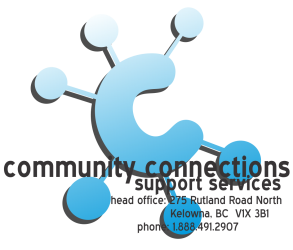Hey everyone, we’ve been posting a series as part of Community Inclusion Month. Last week, we talked about where we’ve been in terms of disability rights and inclusion, and the work done by self-advocates who have brought the movement to where we are now. This week, we’re focusing on where we are by exploring some current issues and resources for self-advocacy.
So, what’s self-advocacy?
The BC People First Society (BCPF) talks about self-advocacy being what happens “when we stand up for our needs when they are not being met” and members help each other learn self-advocacy skills. Here is a video of the BCPF Advocacy Committee on Accessibility on YouTube.
The Self Advocate Net website has a whole page dedicated to self-advocacy topics, too, as well as a YouTube playlist of helpful videos here.
Here is an interview from Kelowna Now with Kelowna resident Shelley Decoste that was published on October 7th, to mark Community Inclusion Month. Shelley talks about her experiences and stereotypes about people with diverse abilities.
Here is a news article from CTV News about a young man from Toronto who is part of the Dear Everybody campaign put on each year by a rehabilitation hospital. He (and a team of young people with disabilities) are doing a virtual tour of classrooms and workplaces to talk about ableism.
What’s ableism?
Here’s how the Dear Everybody website explains it: Ableism is the discrimination towards someone based on their abilities, often favouring those who do not have a disability and seeing less value in those that do. And it needs to stop.
The idea is to get people talking about ableism, in order to end it — and that’s where self-advocates come in! Self-advocates can start great conversations about what’s wrong and how to fix it. You can see the videos made to start the Dear Everybody conversation here.
The Easter Seals website has a great idea on this page that would help start important conversations (like Shelley’s interview and like Dear Everybody). You can invite people you know to watch TED Talks about different disability issues, different people’s perspectives, and different experiences, and the then start a conversation about it, or a video chat, or have a talk on the phone. Or, if you’re interested in exploring another way to safely try out online community, you could post on the video page, a message board, or Facebook page, or post a comment below!
Check out the Easter Seals 10 suggested TED Talks about disability, accessibility, and inclusion to get started (printable list below).



One Reply to “COMMUNITY INCLUSION MONTH: Where we are”